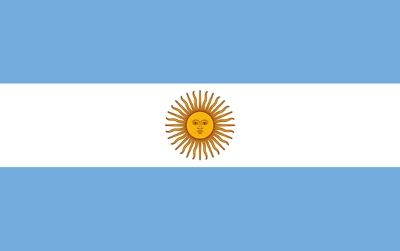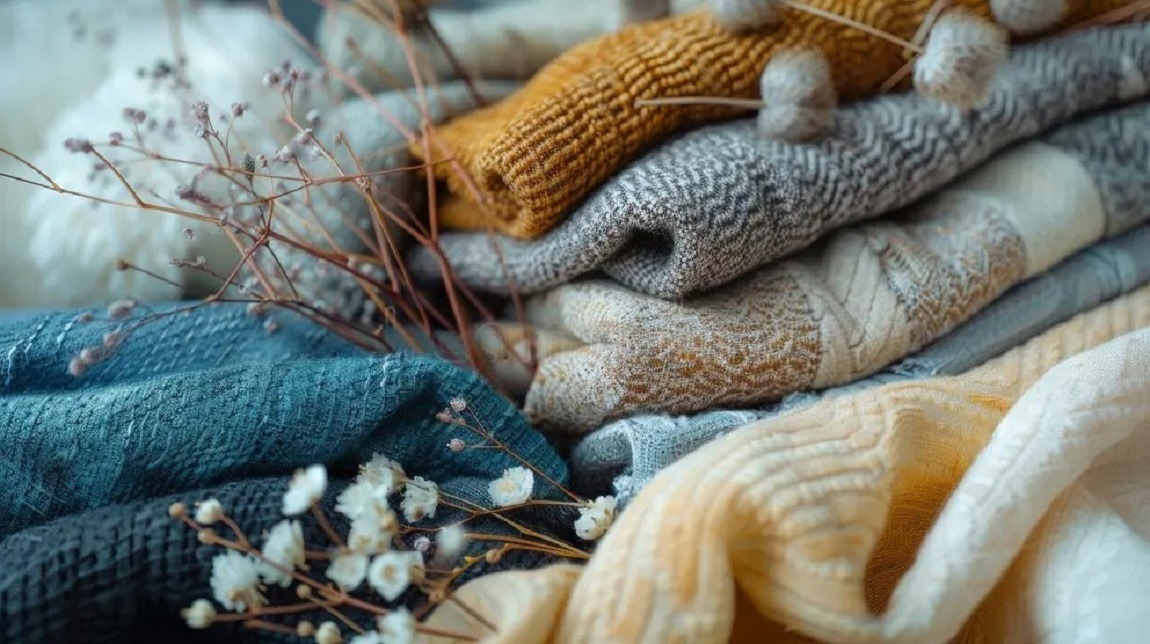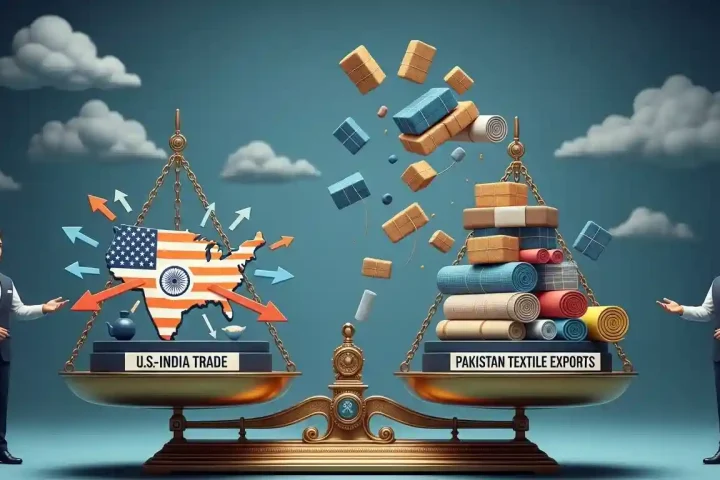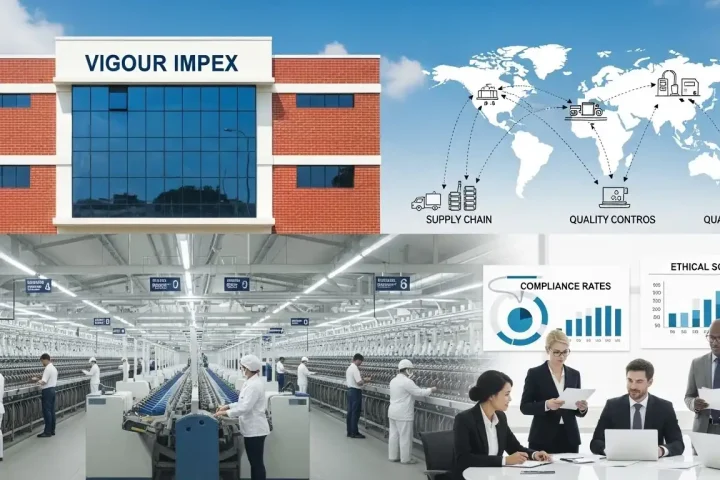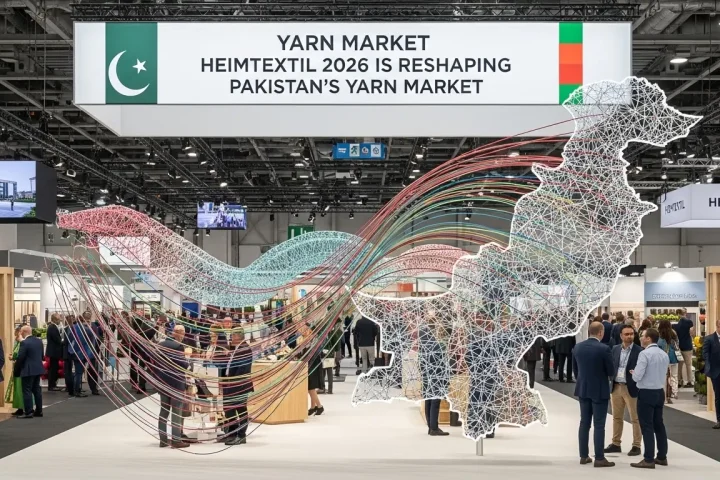Fast fashion is hurting the planet, and smart brands know it’s time to change. If your clothing line still depends on harmful fabrics or unreliable suppliers, you’re not just losing customers. You’re losing trust. Now more than ever, shoppers want eco-friendly products that look good and feel right. That’s where Pakistan comes in. In 2025, it’s one of the top places to find high-quality, planet-safe fabrics like organic cotton, bamboo, and even algae-based textiles.
The best part? It’s affordable, ethical, and backed by years of textile expertise. This step-by-step guide shows you exactly how to source sustainable fabrics from Pakistan without stress, without waste, and without guessing. We’ll cover smart sourcing tips, trusted suppliers to help you start strong. If your brand stands for more than just fashion, it’s time to prove it.
Understanding Eco-Friendly Fabrics in Pakistan
What does it mean to source eco-friendly fabrics? It’s about choosing materials that minimize environmental harm while supporting ethical production. Pakistan’s textile sector, the backbone of its economy, is embracing sustainability with cutting-edge practices. From organic cotton to recycled polyester, the country is a goldmine for eco-conscious brands. This section explores why Pakistan is a top choice and what sustainable fabrics really mean in 2025.
Pakistan’s textile industry employs over 40% of its industrial workforce and is the world’s eighth-largest textile exporter. Innovations like Nishat Mills’ supercritical CO₂ dyeing, which cuts water use by 60%, show a commitment to green practices. “Sustainability is our passport to the future,” says Abdul Rahim Nasir, Chairman of the Pakistan Hosiery Manufacturers Association. Yet, challenges like high energy costs and past crop losses from 2022 floods push the industry to diversify beyond cotton.
Understanding these dynamics helps brands make informed choices. A 2023 Gallup Pakistan survey noted 62% of urban consumers prioritized eco-fashion, up from 34% in 2020. This section sets the stage for sourcing smarter. Next, let’s dive into the specific fabrics Pakistan offers.
Table: Pakistan’s Textile Industry Snapshot
Top Eco-Friendly Fabrics from Pakistan in 2025
What eco-friendly fabrics are available from Pakistan? The country offers a range of sustainable materials, from time-tested organic cotton to cutting-edge algae fibers. This section answers that question with a breakdown of the top options, their benefits, and their costs, helping brands align with sustainability goals.
- Organic Cotton: Grown without pesticides, it supports soil health and reduces water pollution. Brands use it for soft, durable apparel. Cost: ~$20/yard.
- Hemp: A low-water, pesticide-free crop that’s carbon-negative, absorbing more CO2 than it emits. It’s ideal for rugged yet breathable fabrics. Cost: ~$35/yard.
- Jute: Biodegradable and strong, perfect for bags and upholstery. Pakistan is a top global producer. Cost: ~$15/yard.
- Recycled Polyester: Made from plastic waste, it cuts landfill impact. Cost: ~$18/yard.
- Algae-Based Fibers: A 2025 trend, these fibers from startups use agri-waste for biodegradable textiles. Cost: ~$40/yard.
“Organic cotton is the gold standard for sustainability, but algae fibers are the future,” says Dr. Sana Iqbal, a textile researcher at Punjab University. However, high costs for innovative fibers can be a hurdle for small brands. Balancing quality and budget is key. The next section covers how to find reliable suppliers for these fabrics.
Table: Eco-Friendly Fabrics Comparison
| Fabric | Cost/yard | Benefits | Challenges |
| Organic Cotton | $20 | Pesticide-free, soft | Water-intensive |
| Hemp | $35 | Carbon-negative, durable | Limited scalability |
| Jute | $15 | Biodegradable, strong | Coarse texture |
| Recycled Polyester | $18 | Reduces waste | Energy-intensive recycling |
| Algae Fibers | $40 | Innovative, biodegradable | High cost |
Finding Reliable Pakistani Suppliers for Sustainable Fabrics
Looking for eco-friendly fabric suppliers in Pakistan but don’t know who to trust? The truth is, finding partners that meet your sustainability goals can be tough. Some overpromise. Others lack the quality or transparency your brand deserves. That’s why working with a reliable sourcing partner like Vigour Impex can change everything.
At Vigour Impex, we specialize in connecting global brands with certified, ethical textile manufacturers across Pakistan. Instead of spending months researching and verifying suppliers, we help you cut through the noise. Whether you need organic cotton, recycled blends, or custom sustainable weaves, our vetted network delivers quality, compliance, and consistency.
Of course, trade shows like Heimtextil or London Textile Fair are great for exploring options, and directories like GOTS or the Organic Cotton Directory can help, but why take the long road when Vigour Impex can fast-track your success?
Our team ensures every supplier meets global standards like GOTS, Oeko-Tex, and GRS, so you can source with confidence. We’ve helped brands of all sizes from startups to global retailers, scale their sustainable collections without hassle. Want to stop guessing and start sourcing smarter? Vigour Impex is ready to help.
Checklist: Finding Suppliers
- Search Maker’s Row or Organic Cotton Directory.
- Attend Heimtextil or London Textile Fair.
- Contact Pakistan Textile Council for SME recommendations.
- Verify certifications directly with issuing bodies.
Next, we’ll break down which fabric certifications matter and why they protect your brand.
Certifications for Eco-Friendly Textiles in Pakistan
What certifications ensure eco-friendliness? Certifications are the backbone of trust in sustainable sourcing. This section explains key standards in Pakistan’s textile industry and how to verify them, ensuring your fabrics meet global benchmarks.
- GOTS (Global Organic Textile Standard): Ensures organic fibers and ethical production from farm to factory. Fateh Textile Mills holds this for organic cotton.
- Oeko-Tex Standard 100: Verifies chemical-free textiles. Common in Nishat Mills’ exports.
- Made in Green: Tracks eco-friendly processes across the supply chain, ensuring transparency.
- Fair Trade: Guarantees fair wages and ethical labor practices, critical for small brands.
To verify, request certificates and cross-check with issuing bodies. “Certifications aren’t just labels, they’re proof of a supplier’s commitment,” says Bilal Ahmed, a GOTS auditor. A 2023 Pakistan Business Council study noted 65% of exporters now hold GOTS or Oeko-Tex certifications, up from 40% in 2020. But beware: fake certifications exist. Always confirm directly. Next, let’s tackle sourcing on a budget.
Steps to Verify Certifications
- Request a certificate from the supplier.
- Check the certificate number with the GOTS/Oeko-Tex database.
- Confirm validity with the issuing body.
- Ensure the supplier’s processes align with certification standards.
Sourcing Sustainable Fabrics on a Budget
Can you source eco-friendly fabrics without breaking the bank? Small brands often face high costs. Piñatex, for example, runs $65/yard. This section shares cost-saving tips tailored to Pakistan’s market, helping startups and designers source sustainably on a budget.
- Buy Deadstock Fabrics: Source leftovers from manufacturers at 30–50% lower prices, reducing waste.
- Join Cooperatives: Designer groups can share bulk orders to lower shipping and MOQ costs.
- Negotiate with SMEs: Smaller Pakistani firms offer flexible MOQs compared to giants.
- Leverage Local Platforms: Use the Pakistan Textile Journal to find deals on sustainable yarns.
“Deadstock is a game-changer for startups,” says Maria Zubair, a Karachi-based designer. A counterpoint: low-cost options may compromise on quality, so always request samples. Budget sourcing is possible with the right strategy. Next, let’s explore Pakistan’s 2025 textile trends and challenges.
Table: Budget Sourcing Strategies
| Strategy | Savings Potential | Example Supplier |
| Deadstock Fabrics | 30–50% | Chenab Limited |
| Cooperative Buying | 20–30% | Local designer groups |
| SME Negotiation | 15–25% | Safa Textile |
Trends and Challenges in Pakistan’s Sustainable Textile Industry
What’s shaping Pakistan’s eco-friendly textile scene in 2025? From groundbreaking innovations to persistent hurdles, this section answers that question, highlighting trends and challenges to inform your sourcing decisions.
- Trends:
- Net-Zero Textile Cluster: Faisalabad’s initiative aims for 100% renewable energy by 2025, reducing carbon footprints.
- AI and Blockchain: Tools like Connect PLUS at Intertextile Shanghai enhance supply chain transparency.
- Algae and Agri-Waste Fibers: Startups like Trash4Fashion pioneer biodegradable textiles from waste.
- Challenges:
- High Energy Costs: A single waterless dyeing machine costs $2.5 million, a barrier for SMEs.
- Crop Losses: 2022 floods wiped out 45% of cotton crops, pushing reliance on hemp and jute.
- Scalability: Informal recycling limits large-scale adoption of innovative fibers.
“Pakistan’s innovations are world-class, but scaling them needs investment,” notes Dr. Faisal Shah, a textile engineer. A 2025 Fibre2Fashion report predicts Pakistan’s sustainable textile exports will hit $16 billion, driven by EU partnerships like the €70 million REELAY programme. Staying ahead of these trends ensures smarter sourcing. Ready to take action? The next section outlines the steps.
Pakistan’s Sustainable Textile Milestones
- 2020: 34% consumer eco-fashion preference.
- 2023: Nishat Mills adopts supercritical CO₂ dyeing.
- 2025: Net-Zero Cluster launches in Faisalabad.
Steps to Source Eco-Friendly Fabrics from Pakistan
How do you turn research into action? This section provides a clear, five-step process to source eco-friendly fabrics from Pakistan, ensuring quality, sustainability, and efficiency for your brand.
- Define Needs: Specify fabric type (e.g., organic cotton), quantity, and certifications based on your brand’s goals.
- Research Suppliers: Use Maker’s Row, Pakistan Textile Council, or trade shows like Heimtextil.
- Request Samples: Test fabric quality and eco-credentials before committing.
- Negotiate Terms: Discuss MOQs, pricing, and delivery. Ask about deadstock for savings.
- Build Relationships: Partner with suppliers like Gul Ahmed for long-term quality assurance.
A Business Council study found 70% of successful sourcing partnerships began with sample testing. Don’t rush building trust takes time but pays off. Want a head start? The next section offers a unique toolkit.
- Step 1: Define fabric and certification needs.
- Step 2: Research via directories or trade shows.
- Step 3: Test samples for quality.
- Step 4: Negotiate MOQs and pricing.
- Step 5: Establish long-term supplier ties.
Final Thoughts:
Sourcing sustainable fabrics can be challenging, but with Vigour Impex, it doesn’t have to be. Based in Pakistan, one of the world’s leadingq textile hubs, Vigour Impex connects global brands with certified, eco-friendly fabric suppliers you can trust. From organic cotton and recycled blends to low-impact dyes and GOTS-certified textiles, Vigour Impex helps you source with confidence..
In 2025, sustainability isn’t optional; it’s essential. Our team ensures every supplier meets top certifications like GOTS, Oeko-Tex, and GRS, so your brand can meet its goals without compromising quality or ethics.
By partnering with Vigour Impex, you skip the guesswork and get straight to smart, responsible sourcing. Let’s build your next collection on a foundation that supports the planet and your brand. Start your sustainable journey with Vigour Impex today.
FAQs
1. What are the best eco-friendly fabrics made in Pakistan?
Pakistan is known for organic cotton, bamboo fabric, hemp, and recycled polyester. Some factories are now using algae fibers and waterless dyeing methods to reduce waste.
2. How can I find trusted sustainable fabric suppliers in Pakistan?
You can use directories like the Organic Cotton Directory or contact companies like Vigour Impex that connect you with verified, ethical suppliers. Trade shows are also a great place to meet face-to-face.
3. Are eco-friendly fabrics from Pakistan certified?
Yes, many Pakistani suppliers offer GOTS, Oeko-Tex, and GRS-certified fabrics. Always ask for proof and check with the official websites of these certifications.
4. Is it affordable to source sustainable fabrics from Pakistan?
Yes. Compared to other countries, Pakistan offers good prices, even for eco-friendly materials. It’s a smart option if you want quality and sustainability without breaking your budget.
5. Why choose Pakistan for eco-friendly fabric sourcing in 2025?
Pakistan’s textile industry is going green fast. With new technologies, experienced mills, and strong export systems, it’s a great place for brands that want to grow sustainably.


